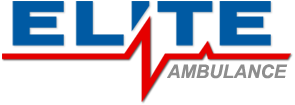Vehicle safety regulations and NEMT compliance standards are constantly evolving, making it incredibly difficult to manage and stay ahead of the curve in the non-emergency medical transportation industry. Falling behind can lead to irreversible issues and potential regulatory penalties. This blog hopes to simplify some of these confusing standards and help you navigate NEMT compliance with the understanding as to why they are paramount for your operation and for your passenger’s safety.
What are some of the Critical Needs for NEMT Vehicle Safety?
Non-Emergency Medical Transportation (NEMT) refers to the transportation service benefit for people who need assistance getting to and from medical appointments. That can range anywhere from elderly people who do not drive, those with disabilities, and more. More likely than not it is planned medical transportation, thus making security and safety of the utmost importance.
NEMT service providers should be maintaining their vehicles properly, protecting passenger’s sensitive information, and utilizing up-to-date tracking technology to maintain compliance with safety regulations.
Vehicle Safety
NEMT vehicles are not small. We’re not talking stop-on-a-dime type coupes or sedans here. So, while spacious and able to fit patients in the cabin, they are not agile road warriors. So, think about your everyday driving maneuvers – stopping, accelerating, turning, backing up – those types of moves. You need to have a vehicle and a driver proficient to do the basics and do them smoothly.
That may not seem like much to ask, but you’d be surprised. A simple broken seat belt or a driver that’s not properly trained could lead to major issues. Lest not forget that the passengers NEMT providers are transporting around are not in the best position to protect themselves should anything happen.
Vehicle Health
Vehicle health and vehicle safety are two different things. I’m referring to things a bit more technical when referring to vehicle health—things that require timed maintenance and servicing such as brakes, engine, oil, and more.
Vehicles that are regularly inspected and kept in proper shape are far less likely to experience unexpected breakdowns and even worse, accidents. Not to mention, failure to keep your vehicle healthy could lead to long-term problems for the vehicle itself and not to mention, short-term risk for the patients being transported. It is incredibly important to keep your fleet of vehicles regularly maintained.
Emergency SOPs
Having the proper contingencies in case of an emergency or for whatever reason there may be is crucial to your entire operation. How do you go about selecting a new vehicle in the event of a breakdown that is properly equipped to handle the patient’s needs? Are your drivers in contact with the team the ways they should be?
All of these things are important safety nets to have in place to deal with whatever might come your way. Every member of the process; from driver, to dispatcher, assistant, and emergency teams are important when it comes to executing proper emergency standard operating procedures.
Data Protection
Data protection is easily the most difficult security issue surrounding NEMT, but it’s also the most important. In the age of increased cyber threats, a company must take every precaution when it comes to protecting their customer’s information and properly manage their inventory digitally. In accordance with federal HIPAA laws, Elite Ambulance takes privacy and data protection very seriously as a top priority. It is our goal to always have the trust of our customers and maintain a good standing with federal laws and regulations.
What are Some Federal or State NEMT Compliance Requirements?
The thing about safety and NEMT compliance standards is that they are law and not just some marketing promo copy that companies can put together with no accountability. There are federal and state laws that require NEMT providers to actionably commit to safety
Equipment, Vehicle, and Driver
Vehicles must have regular inspections that include:
Brakes
Tires
Seat Belts
Headlights and Taillights
The must also be equipped and fully stocked for:
First Aid Kits
Fire Extinguishers
Communication Devices
Up-to-Date Vehicle Documents
Drivers must:
Pass specific driving tests
Have the proper drivers license
Have a clean driving record
Pass necessary background checks
Obtain required medical certifications
Insurance
All NEMT providers must have adequate insurance coverage. That’s just standard. And that’s just the legal aspect of it. Making your drivers operate vehicles that are not properly insured is dangerous and creates a horrible workplace environment. Also, having passengers in inadequately insured vehicles is reckless and an extreme liability.
HIPAA
HIPAA stands for the Health Insurance Portability and Accountability Act and it protects the privacy and security of your patient’s data. This data privacy act is imperative. Fine and charges for HIPAA violations are broken down two ways: Reasonable Cause and Willful Neglect. Fines for reasonable cause violations range from $100 to $50,000 without any jail time while willful neglect violations range from $10,000 to $50,000 and can result in criminal charges.
Above all, the safety of your passengers is the most important thing about NEMT. All providers must follow very specific safety guidelines for passenger safety. This includes everything from assistance onboarding and offboarding the vehicle, restraining mobility aids properly, and providing quality, working seat belts for passengers. All NEMT providers must ensure their vehicles comply with the Americans with Disabilities Act (ADA). This act protects the freedoms of those with disabilities and ensures accessibility to proper healthcare transportation.
As a passenger it’s important that you understand the operational side of NEMT, as your safety is their responsibility. These common NEMT compliance and requirement standards questions are to provide insight and top-line information to keep you aware of your rights and the standards that all NEMT providers are legally required to comply with.
Comments are closed.


